Die Hard

Yep, we went there – and for the very first point on the list! Don’t get us wrong, Die Hard (1988) is one of the most important action films ever made, but is it really a Christmas movie? It’s certainly set at Christmas: John McClane barges in on the office Christmas party, fills a bad guy with lead and then dresses him as Santa, and the whole thing ends with Let It Snow.
But where’s Santa Claus himself? More importantly, where’s the Christmas spirit? The festive season is a time to put your grievances aside and come together with family. Maybe we’ve missed it in the small print, but launching a terrorist off a skyscraper doesn’t seem very Christmassy to us. Die Hard is simply a brilliant action movie, but there’s nothing Christmassy about it. They couldn’t even find space for a manger!
The Railway Children

The Railway Children (1970) follows some posh kids slumming it in Yorkshire and stopping a train crash with their petticoats. Let’s be honest though, the only reason The Railway Children is ever included on lists of Christmas films is that it’s often screened during the holiday season. Maybe that’s because it’s a quintessential family film, or maybe just because it features a train as a prominent part of the story.
For whatever reason, trains just feel festive! They’re so Christmassy, in fact, that they made an entire film about a Christmas train: The Polar Express (2004)! Is that enough to make The Railway Children a Christmas film? Absolutely not. We can’t exactly deny other films’ Christmas claims and then give the medal to The Railway Children, which mentions the holiday not once – just because it’s on the telly.
Trading Places

A modern take on Mark Twain’s classic novel The Prince and the Pauper, the plot of Trading Places (1983) involves an upper-class commodities broker (Dan Aykroyd) and a homeless street hustler (Eddie Murphy) crossing paths and unknowingly being made part of an elaborate bet. Much like Die Hard, this is a film that’s definitively set at Christmas, and even has integral scenes at the firm’s Christmas party.
But stop to think for a moment, and you’ll realise that trading futures and commodities really has very little to do with the festive season. It seems that Trading Places is just another film made Christmassy by its regular appearances on TV over the holidays. This is especially the case in Italy, where it has been shown on TV every single Christmas since 1997.
Batman Returns

Would it really be Christmas without vigilante justice in a corrupted gothic city? Yes. Yes it would. This film has a better claim to Christmas-dom than most, with its uproarious decorations and moody scenes of snow in dark alleyways. It even features a pageant queen called The Ice Princess and a few quippy lines about the reason for the season, especially when Batman and Catwoman end up under the mistletoe.
Unfortunately for Tim Burton’s sophomore Bat-flick, all of that Christmassy work is undone by the story, which sees the Penguin plot to kill all of Gotham’s firstborn children in revenge for being abandoned by his parents. Now, you might argue that the Penguin’s scheme mirrors Herod’s execution of children after Jesus’ birth. Our answer? If it’s inspired by something that comes after Jesus’ birth, it’s more of a New Year’s story!
Lady and the Tramp

Following the touching romance between a posh dog and a dog that isn’t posh, many of you will undoubtedly have fond memories of sitting down to watch Lady and the Tramp at Christmastime. Unfortunately, that alone isn’t enough for it to score festive points. Before you think about urinating on the carpet in protest, we haven’t forgotten that the story takes place over exactly a year, between two celebrations of the festive season.
Themes of charity and generosity abound, but that doesn’t change one hugely important fact that should disqualify this film from any Christmas list. Since the majority of the action takes place at a time when it isn’t Christmas, how could you possibly call this a Christmas film? In fact, simply by virtue of most of the film taking place on every day of the year that isn’t Christmas, Lady and the Tramp might secretly be the least Christmassy film of all!
The Sound of Music

The Sound of Music (1965) is a film about a nun who doesn’t quite fit in, who falls in love with a naval officer while working as a governess. It may not be all that Christmassy, but the film is certainly a worldwide phenomenon, and somehow manages to contain both a scene about yodelling puppets and one about being pursued by Nazis without the entire movie collapsing in on itself.
That’s not to say that Christmas goes completely unmentioned: Julie Andrews chirping about warm woollen mittens and sleigh bells does rustle up a certain festive hygge. But as much as we love the film, there’s no way of sugar-coating it: The Sound of Music has nothing to do with Christmas and, frankly, doesn’t belong on our screens in December.
The Lord of the Rings

There’s nothing more escapist than high fantasy, and for many people, there’s not a Christmas that goes by without at least some of Peter Jackson’s incomparable Lord of the Rings trilogy playing on TV. Regrettably, despite being plastered on television over the holidays, The Lord of the Rings contains – count them – zero mentions of Christmas in any of its films.
Granted, this might be because the story takes place in a completely separate world, but even The Chronicles of Narnia managed to squeeze in Santa Claus, so Peter Jackson could really try harder! You can, however, see why The Fellowship of the Ring (2001) in particular evokes the feel of wintertime. Courtesy of Saruman, the party is beset by snow in the mountains, Gandalf is an old man with a beard, and those enormous eagles look like they could pull a sleigh.
The Great Escape

Against all odds, The Great Escape (1963) marks the second instance of running away from Nazis on this list. This landmark prisoner of war film from John Sturges has become a Christmas watch for many, owed in part to its frequent screenings on Christmas Day. In fact, in 2006 the film came third in a poll of viewers’ preferred Christmas Day films, finishing a hair behind It’s A Wonderful Life (1946) and The Wizard of Oz (1939)!
Unfortunately, beyond prolific viewing during Yuletide, there’s not much Christmassy about The Great Escape. True, the prisoners do sing The 12 Days of Christmas to mask some deft slat thievery, but that’s about it. Even worse, the film’s sombre ending – in which most of the prisoners are executed – falls short of the kind of heartwarming Christmas morals we’ve come to expect. There’s certainly room for improvement on the Clausometer.
Home Alone

Let’s get really controversial. Many list Home Alone (1990) as their top festive film, but it has a lot less to do with Christmas than you might think. Home Alone sees delinquent Kevin McCallister left behind when his family jet off to Paris, leaving him to face off against a pair of mean burglars with nothing more than his wits and various household objects. Kevin listens to carols at a church and even meets a guy dressed as Santa during the movie – so it must be Christmassy, right?
Well, the main thrust of the film leaves a lot to be desired in terms of festive cheer. The film’s most memorable moments include Kevin applying cologne to his face, and Joe Pesci getting totalled by Micro Machines and buckets of paint. What’s Christmassy about that? Now, Home Alone 2: Lost In New York (1992), that’s an honest-to-goodness Christmas film, as it sees the Wet Bandits attempting to rob a toy store on Christmas. Macaulay Culkin’s first outing? Not so much.
Gremlins

Let’s be frank: Gremlins isn’t a Christmas film. The movie sees a struggling inventor give his son a mysterious Mogwai, with all hell breaking loose when the Mogwai transforms into a horrifying lizard-like Gremlin. Much of the film’s Christmas credentials hinge on the fact that Gizmo the Mogwai is given as a Christmas present, and there’s a scene in which Kate describes how her father died and rotted in a chimney while dressed as Santa Claus.
But apart from these points, Christmas is largely irrelevant. It’s worth remembering that Gremlins wasn’t even intended as a Christmas flick: it was released in the summer of 1984 and became embroiled in controversy for its violence. After the hubbub subsided, the film was released again in 1985, in summer! So, even when distributors had a chance to more firmly plant Gremlins’ flag as a Christmas film, they declined to do so. That says it all!
Jumanji

Christmas is a time for board games, but we’re talking Monopoly and Cluedo, not ones that suck you into a dangerous jungle. Still, Jumanji (1995) has become a festive classic due to its real-life Santa Claus, star Robin Williams. Transported to a mysterious, deadly jungle by an old board game, two children must finish what Alan Parrish (Williams) started, so they can all be released from its dimensional clutches.
So far, so not Christmassy. But apart from the festive family adventure vibes, it’s worth remembering that the film actually ends at a Christmas party once Alan has been restored to the real world. But then we see the Jumanji box poking out of a beach, ready to ensnare more board game enthusiasts. So as much as we love the film, there just isn’t enough here to call it a Christmas movie. We certainly wouldn’t say no to rewatching during the summer though.
Rent

Rent takes place between Christmas Eve 1989 and Christmas Eve 1990, chronicling a year or, famously, 525,600 minutes. There are some memorable winter moments in the film, which sees a group of queer people living the bohemian New York lifestyle against the backdrop of the AIDS crisis. It also features themes of togetherness and battling against the odds, which is certainly Christmassy.
However, despite Angel dressing up as Santa, this movie also features characters cheating on each other, stealing money from an ATM and even discussing killing a dog in cold blood for Thanksgiving food money! Ultimately, Rent is another good example of a film set between two Christmases that fails to live up to the jollity of the season. That’s not to say it’s not a good movie though!
The Nightmare Before Christmas

This is a complicated one. In The Nightmare Before Christmas, Jack Skellington stumbles into Christmas Town and hatches a dastardly plan to take over the festivities himself. As for its status as a Christmas film or a Halloween film, that’s been subject to debate since the film was released. There are great arguments on both sides: there’s a whole sequence in Christmas Town, Jack dresses up as Santa Claus and of course, the real Santa Claus features.
At the same time, we spend most of the film watching gruesome creatures make ghoulish presents, and who can forget the finale in which Oogie Boogie is unzipped, revealing a writhing mass of horrible bugs? Overall, the film is far more concerned with the aesthetics and gothic horror of Halloween. So if we had to pick a side, and this article insists we do, then The Nightmare Before Christmas is more of a Halloween film than a Christmas one.
Iron Man 3

Not many people would say that Iron Man 3 (2013) is their favourite Christmas film. In fact, there aren’t many who’d say it’s even their favourite Iron Man film. The conclusion to Marvel’s Iron Man trilogy sees Tony Stark battling against the devious Mandarin and his attempt to assassinate the president. Director Shane Black has commented on the film’s technical status as a Christmas film, saying that “If you’re doing something on an interesting scale that involves an entire universe of characters, one way to unite them is to have them all undergo a common experience.”
“Christmas unites everybody and it already sets a stage within the stage,” Black continues, “that wherever you are, you’re experiencing this world together.” However, much as the film might be set at Christmas, its plot really doesn’t evoke any kind of Christmassy vibes. For one thing, it’s about people being filled with goo that makes them super strong and fast. When we fill ourselves with mince pies, we get a lot slower! And unlike the Iron Man 3 minions, no one tends to explode as a result!
Harry Potter and the Philosopher’s Stone

Is Harry Potter and the Philosopher’s Stone a Christmas film? From the winter wonderland of Hogsmeade (albeit featuring in a later film) to the cosy firesides of Hogwarts itself, there are certainly strong arguments to be made. In fact, one of the most memorable moments from the first film is the castle’s transformation into a Christmas extravaganza and Ron receiving a monogrammed jumper. Oh, and Harry receiving a uniquely powerful magical artefact, the privileged so-and-so.
But even though Christmas really does happen in Harry Potter and the Philosopher’s Stone (2001), you’d be hard-pressed to argue it’s a Christmas film overall. Not only is the franchise its own beast, but there are far more memorable moments than the Christmassy parts. After all, who could forget the troll – the troll! – in the dungeon? The first Harry Potter film just can’t be called a Christmas film – we thought you ought to know.
It’s A Wonderful Life
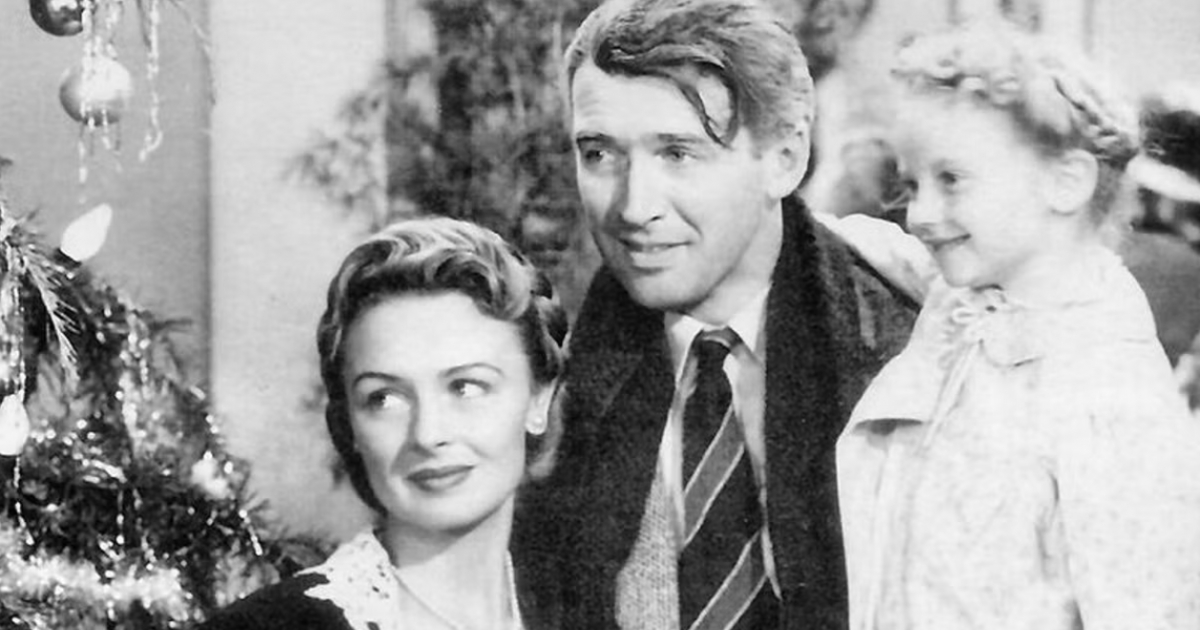
Maybe it’s ambitious to disqualify what many see as the greatest Christmas film of all time from the festive rankings – but hear us out! It’s a Wonderful Life (1946) is a bonafide Frank Capra classic, and follows the downtrodden George Bailey, whose near-suicide summons his guardian angel. Proving that Bailey has in fact made the world a much better place, the angel gains his wings and the credits roll. It’s a heartwarming story of how each human life has value but the trouble is, it doesn’t have much to do with Christmas
Sure, George Bailey contemplates suicide on Christmas Eve, and the idea of an angel coming down from heaven fits with the classic nativity story, but otherwise, the plot of It’s a Wonderful Life is far more concerned with the life of one man and the fate of a local building society. You wouldn’t go see a random man at Nationwide and tell him he’s God’s gift to Christmas, would you?
Mean Girls

Mean Girls sees Cady Heron, played by Lindsey Lohan, transfer to a toxic high school with several competing social factions. It covers the full school year, which naturally includes Christmas. Mean Girls does feature Damian dressing up as Santa Claus, and a relatively risqué rendition of Jingle Bell Rock, both of which form the cornerstone of arguing that this is a Christmas film. But, beware, as not all is as it seems.
It’s been argued that Mean Girls is the perfect film for fooling others into thinking that it’s Christmassy. “The aim is to trick your loved ones into watching a movie that has Christmas in it but is not too Christmassy at all,” reads a Metro article. The audacity of this argument is really something else: their supporting argument is that Christmas is listed as a genre on the official soundtrack. Stop trying to make a Mean Girls Christmas happen!
Eyes Wide Shut

The only Kubrick film to feature Christmas in any prominent way is his final work, Eyes Wide Shut (1999). Focusing on the marital discord of a couple, played by then-couple Nicole Kidman and Tom Cruise, the film involves the infiltration of a secret society for a masked orgy. Importantly, the film is set at Christmastime, and this was a deliberate decision by Kubrick: the short story on which the film is based takes place during Mardi Gras, but Kubrick chose Christmas because of its sense of rejuvenation.
So if the film is set at Christmas, and it’s far from coincidental, and actually fits with the themes of the film, doesn’t that make it a Christmas film? Well, not quite. The Christmas setting is included as a foil. Compared to the purity of Christmas, its innocent joy, the virgin birth, and so on, the events of Eyes Wide Shut are positively Satanic. It would be like setting fire to your local nativity scene and flipping off any low-flying aircraft, then claiming you were just celebrating Christmas.
Edward Scissorhands

Yet another collaboration between Tim Burton and Danny Elfman to make the list, Edward Scissorhands (1990) is a favourite of both the director and the composer. But for those insisting that this is a Christmas film: cut it out. Johnny Depp stars as the eponymous artificial man, an unfinished creation who’s adopted scissors for hands – festive, right?
The basis for Edward Scissorhands being considered a Christmas film is mostly down to Edward’s creation of an ice sculpture modelled on Winona Ryder’s Kim Boggs. With each snip of his scissors, he casts some ice into the air, and it begins to snow. But, come on now, you can’t say that’s something’s a Christmas film just because there’s snow! You wouldn’t call Snowpiercer (2013) a Christmas film, would you? Please stop.
Jaws: The Revenge

The fourth Jaws film, The Revenge (1987) is the most notorious of the big shark films, probably most famous nowadays for the (slightly edited) Michael Caine quote: “I have never seen it, but by all accounts it is terrible. However, I have seen the house that it built, and it is terrific.” Completed in only nine months, Jaws: The Revenge sees a widowed Ellen Brody face off against, you guessed it, a rather large shark.
You could argue that it’s a Christmas film as, in the opening scene, Sean Brody is slowly killed by a shark because his pleas for help were drowned out by carolling! But you’d have to be an utter contrarian to genuinely argue that this is a seasonal flick just because of that. Put the shark in a Santa hat, though, and we might have a rethink.
Little Women

Christmas and period movies go together like too much turkey and falling asleep in front of the TV. So it’s no surprise that when Greta Gerwig’s Little Women came out in 2019, it instantly replaced the other adaptations as many people’s holiday movie of choice. It includes a lush Christmas feast, acts of selfless charity, and an amateur pantomime delivered by the children to their family… what could be more festive than that?
Sadly though, despite its proliferation of tinsel, warm scarves and snow, we cannot count this movie as a true Christmas film. Why? Well, for as much time as it spends in the depths of winter, Little Women also features a midsummer wedding, several spring trips to the beach and an autumn kiss! Plus, it should have its cheer card revoked for having Beth die shortly after her last Christmas alone.
The Holiday

There have been plenty of Christmas romantic comedies over the years, but few have had as stacked a cast as The Holiday, which stars Cameron Diaz, Kate Winslet, Jude Law and Jack Black. The movie sees two unlikely romances bloom as the result of a holiday house swap, with the glamorous LA executive enjoying an English cottage stay while the harried British journalist gets a taste of the Hollywood high life.
Unfortunately, while the half of the movie set in England has all the Christmas set dressing you could expect, we spend most of the movie in the scorching Los Angeles sun. In fact, Jack Black and Kate Winset enjoy a Christmas dinner of alfredo pasta and vodka! The other couple doesn’t do any better, as they also spend the big day without a turkey, any crackers or a pudding! Given that the film ends with both couples finally meeting to toast January 1st, it should probably be counted as a New Years’ movie!
E.T: The Extra-Terrestrial
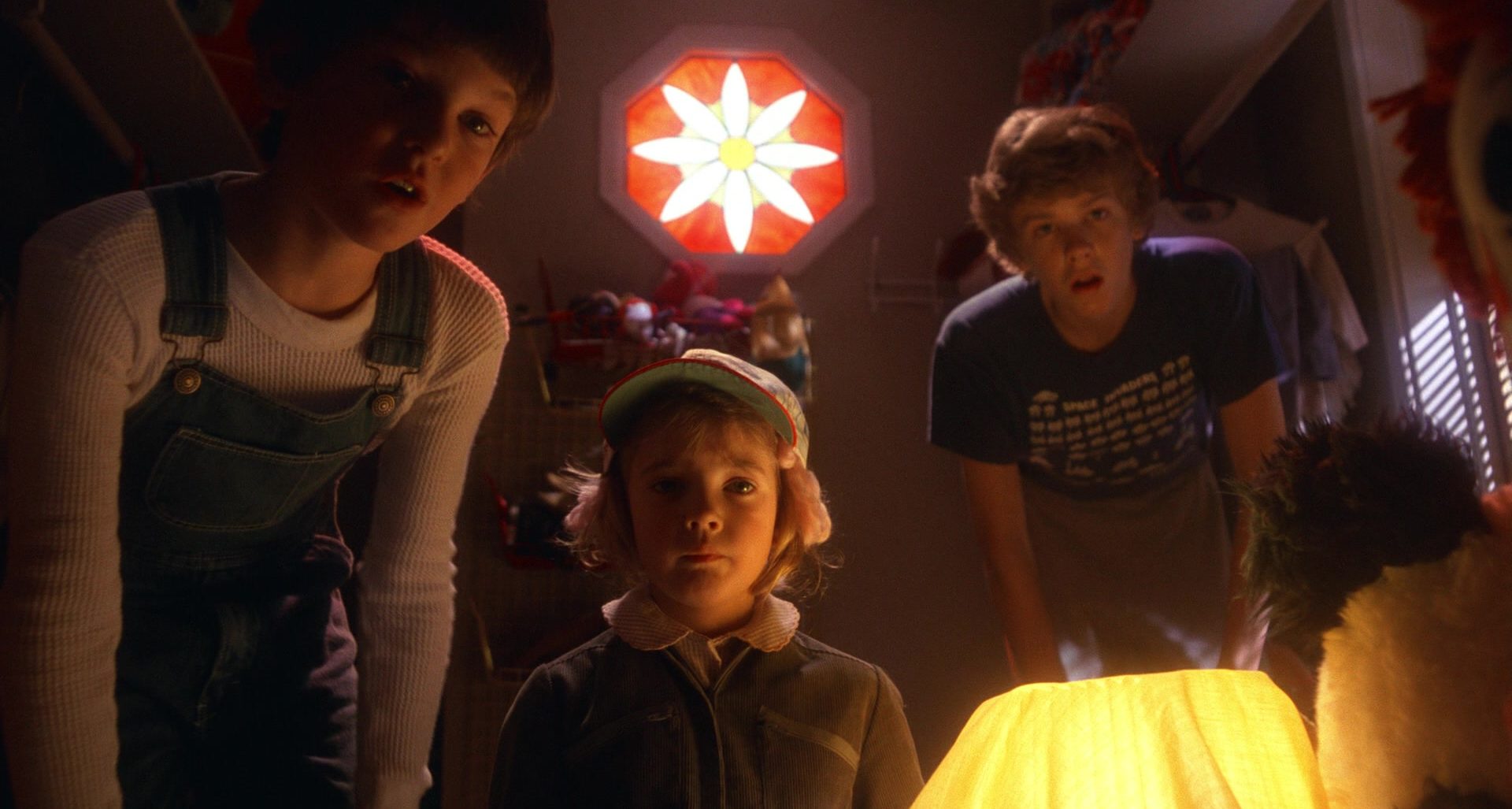
E.T, the adorable and only slightly creepy-looking alien, was the best-selling toy of the 1982 Christmas season. Not only that, but dozens of families still gather around the television to watch the heartwarming story of the boy and extra-terrestrial today, decades after the film was first released. Just like Jurassic Park and Raiders of the Lost Arc, E.T: The Extra-Terrestrial is considered a Christmas film just by virtue of it being a Spielberg classic.
The question is, just how Christmassy is E.T: The Extra-Terrestrial, really? Well, not at all! The only holiday we see Elliott and E.T. celebrate together is Halloween, and we know that E.T. returns home before Thanksgiving or Christmas. Not only that, but getting drunk and freeing the frogs in biology class isn’t an established festive tradition, even if it maybe should be…
Love Actually
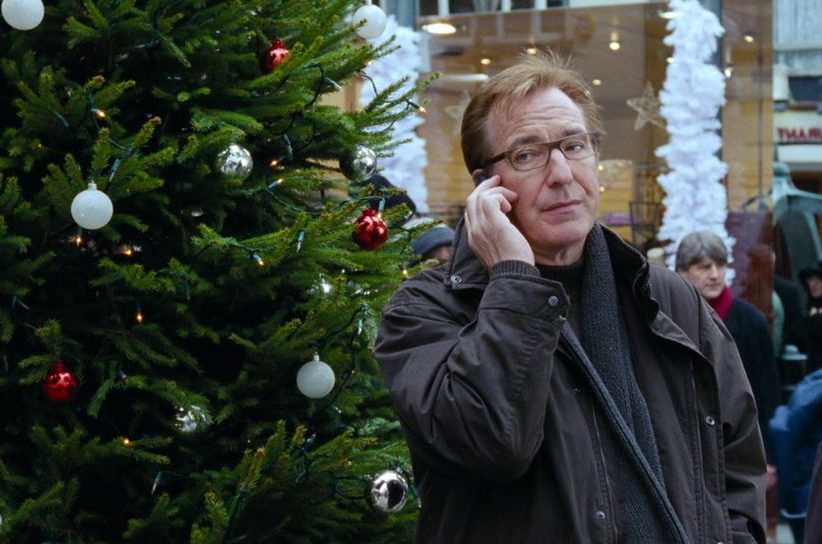
Okay, okay! So everyone knows that Love Actually is a modern Christmas classic of mammoth proportions, and that makes a lot of sense at first glance! After all, there’s the uniquely British stressful holiday shopping, an end-of-term nativity, an office party and even a storyline based around a Christmas number one. So how could there be any doubt? Well, for all the focus that Love Actually puts on the lead-up to the big day, how much Christmas do we actually get to see?
Jamie Bennett abandons his family holiday to jet off to another country to propose, Harry and Karen presumably spend the day miserable and attempting to hide it from the children, and the last we see of Juliet, Peter and Mark is the creepy carolling incident on Christmas Eve. In fact, the only characters presumably having a normal Christmas Day are John and Judy – and we don’t even get to see it!
The Snowman

The Snowman is the quintessential British Christmas classic. It’s impossible to hear the iconic warbling notes of Peter Auty singing Walking in the Air without images of flurries of snow and green plaid scarves filling your mind. Over the course of their night of adventure, the boy and snowman go to a raucous party, pet a reindeer and even meet Santa, which is basically as Christmassy an evening as it’s possible to have! Except, all the festive cheer in the short feels just a little bit off. Santa’s not wearing his iconic red hat, the boy’s Christmas tree is scraggly and skeletal, and the snowman spends more time getting hypnotised by the TV than he does wrapping presents or eating turkey. Plus, The Snowman famously ends with its titular character melting, and the boy kneeling over the pile of snow that was his body! There’s nothing festive about that!
Kiss Kiss, Bang Bang
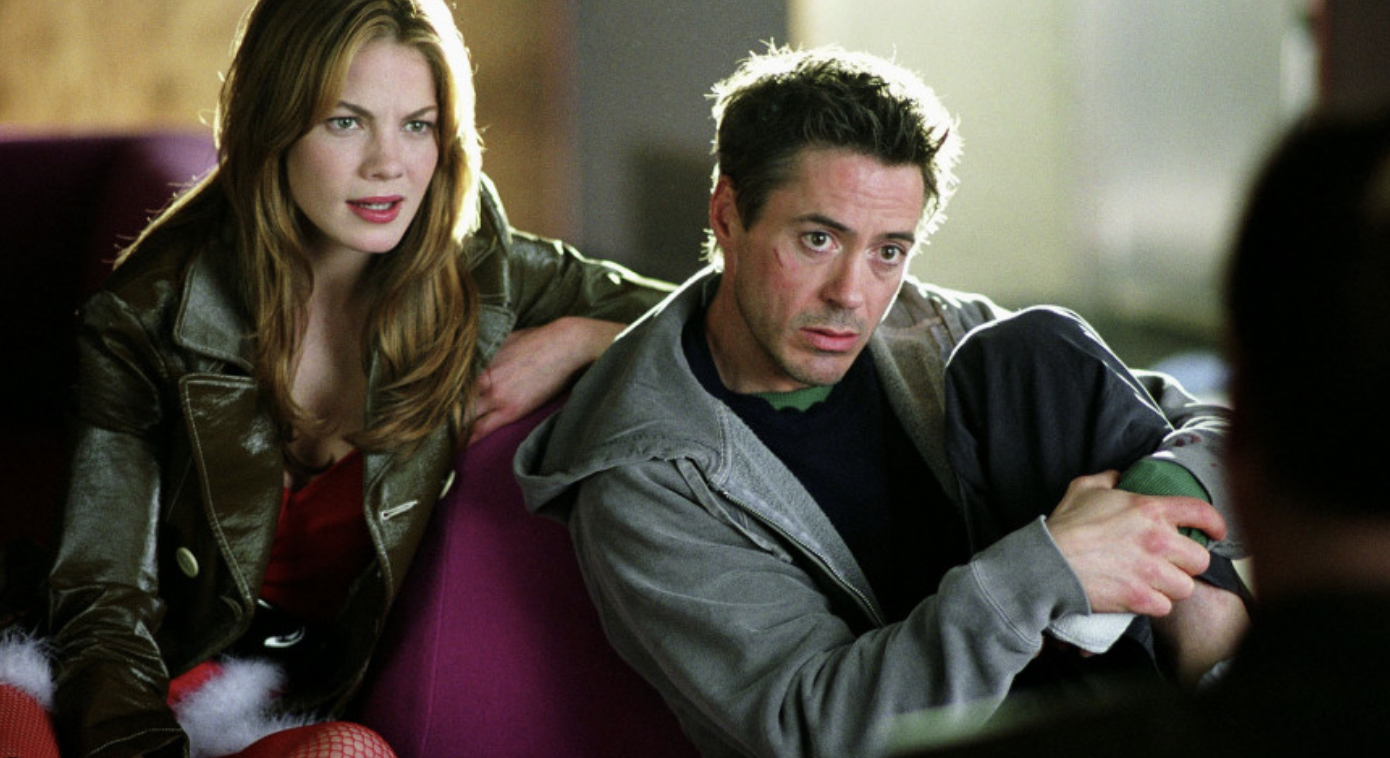
It should by now be abundantly clear that the mere presence of a character in a Santa costume does not a Christmas film make. Unfortunately, Michelle Monaghan’s brief appearance in a risqué Santa outfit has justified Kiss Kiss, Bang Bang’s inclusion on countless lists of the best Christmas flicks. The film’s twisty narrative revolves around a real-life criminal who is mistaken for an actor and sent to accompany a private investigator as preparation for a screen-test, with the pair inevitably getting drawn into a murder plot. Kiss Kiss, Bang Bang is undeniably funny, in its own dark way, but it also deals with themes of incest, which, last time we checked, wasn’t considered particularly festive.
In Bruges
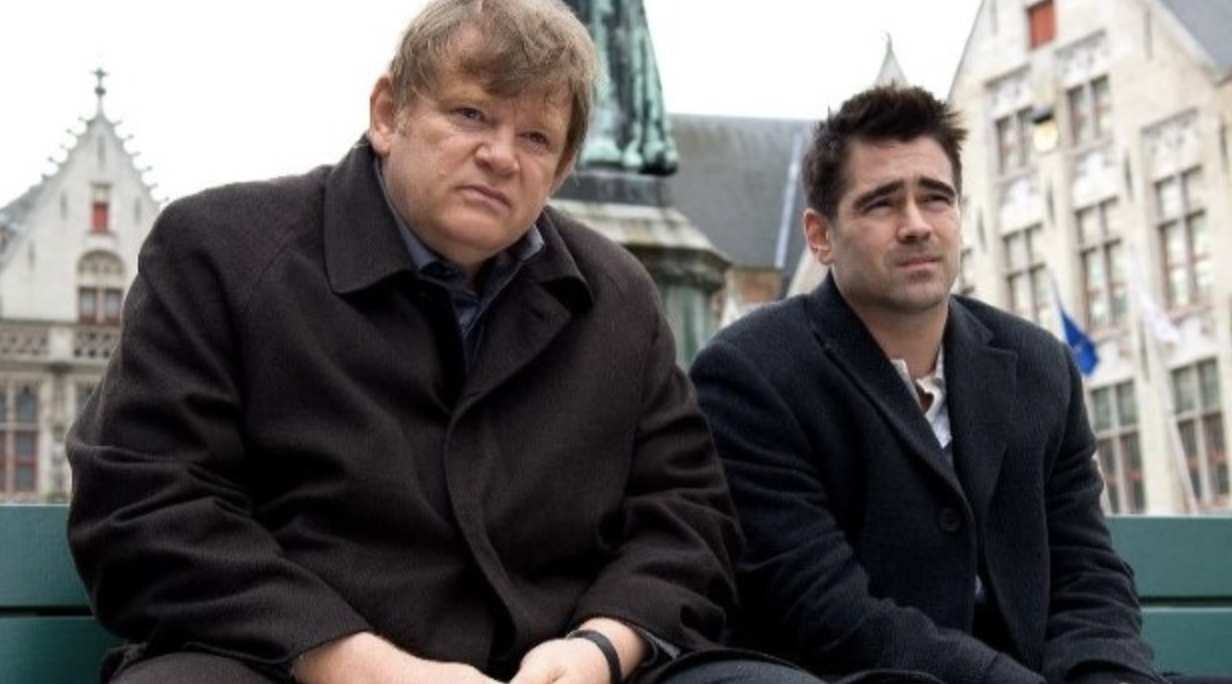
A festive favourite with edgier crowds, Martin McDonagh’s first feature film follows two hitmen – played by Colin Farrell and Brendan Gleeson – as they lie low in the eponymous Belgian town after a hit gone wrong. Whilst In Bruges is technically set over the festive period, and features its fair share of religious imagery, the only real mention of the big day is when Farrell’s character laments the fact that the little boy he’s accidentally shot in the head will never be going home for Christmas. Hardly the definition of festive cheer.
Carol
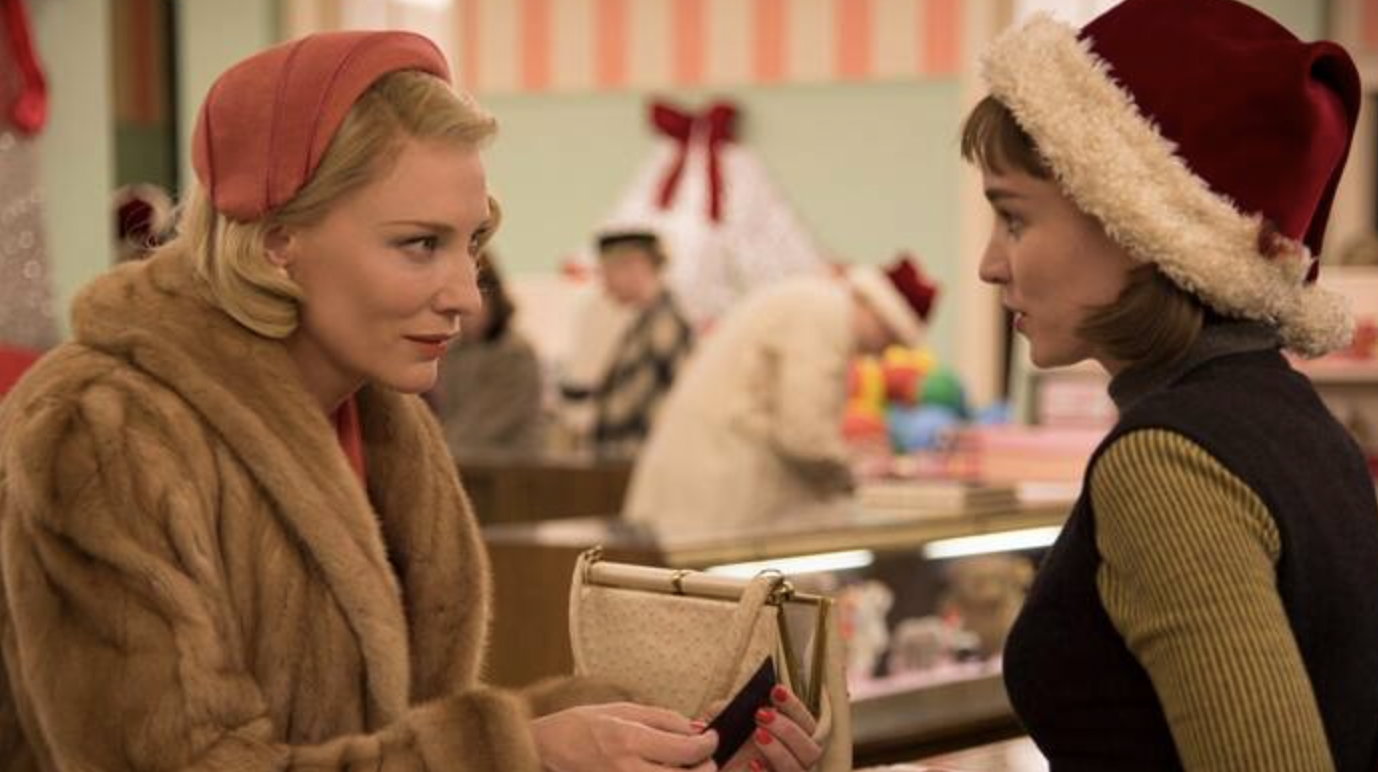
Don’t be fooled by the name; Carol is an undeniably brilliant film, but a Christmas film it is not. Sure, a segment of the film takes place around Christmas, and sure, at one point a character wears a Santa hat, but that’s about as far as the festivities go. The film regularly pops up on lists of the best Christmas movies, but viewers expecting a light, jolly ride are likely to be taken aback by the movie’s exploration of a lesbian affair set against the oppressive backdrop of the 1950s. The film handles its sensitive subject matter beautifully, so pushing it as a Christmas flick frankly does it a disservice.
Bridget Jones’s Diary
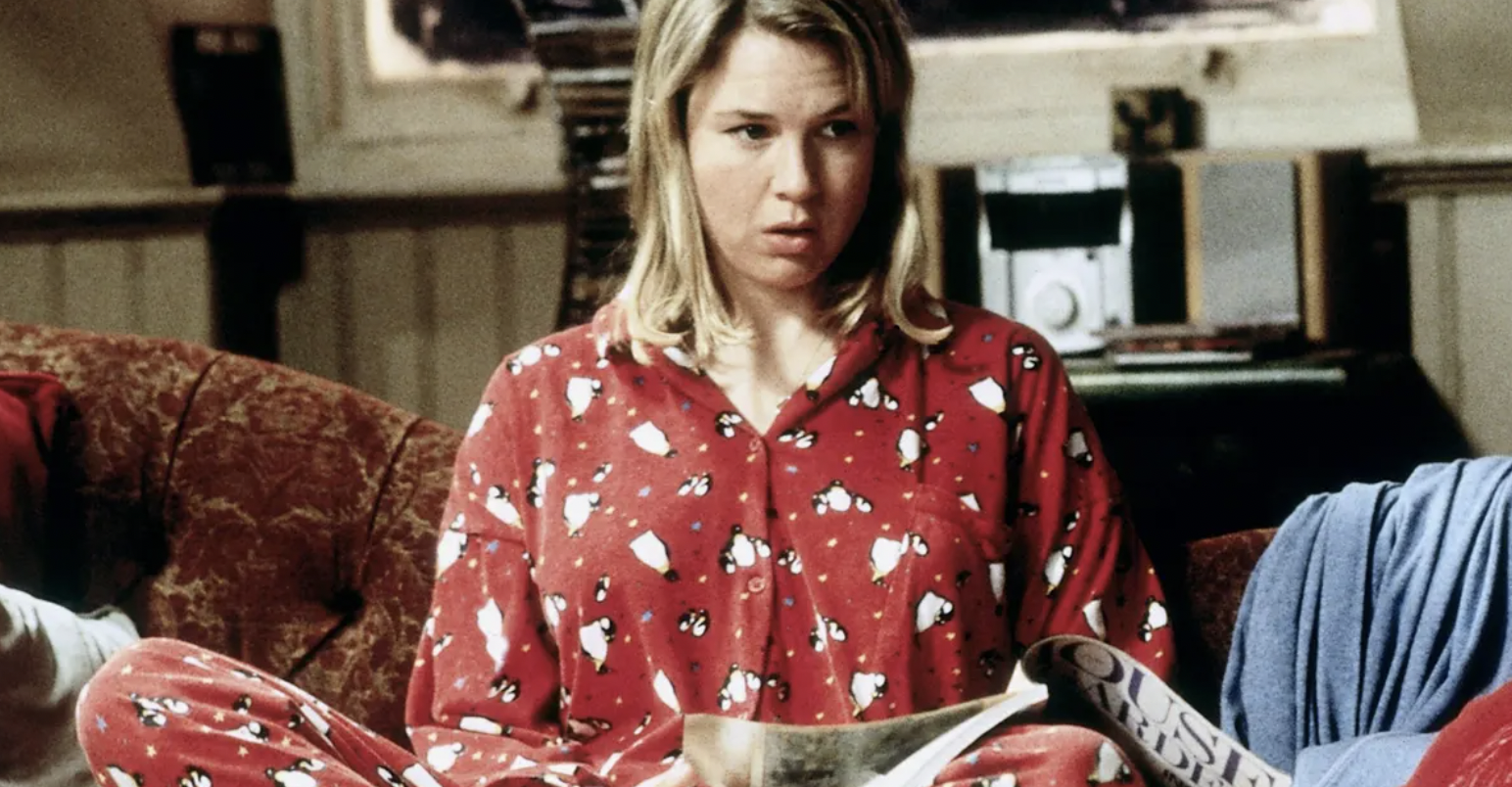
The fact that Bridget Jones’s Diary is often considered a festive film is somewhat mystifying, given that the movie’s narrative starts at a New Year’s party and never actually circles back round to Christmas. People trying to justify the film’s Christmas flick status generally point to the titular character wearing a Christmas jumper and the fact that at one point it snows. If this seems like clutching at straws, that’s because it absolutely is. Nevertheless, Bridget Jones’s Diary remains a (misguided) holiday favourite.
The Long Kiss Goodnight
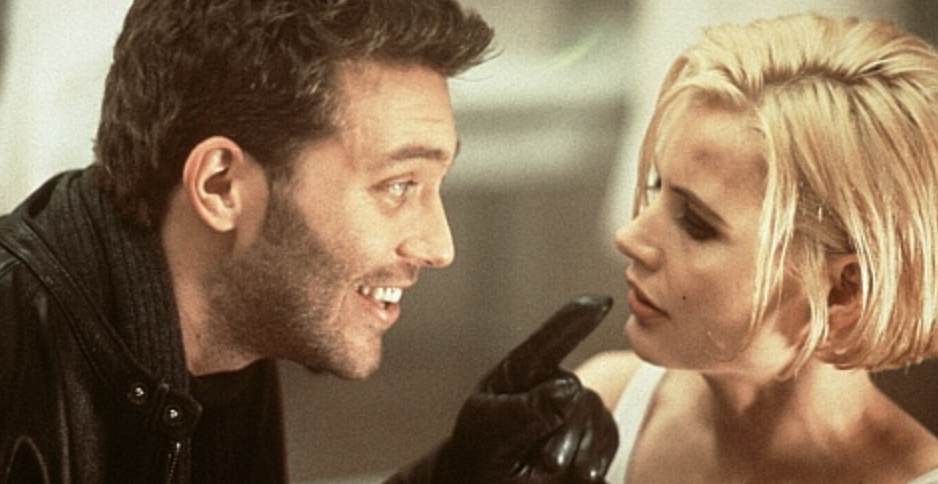
Shane Black is known for setting his films during the holiday season, even if the plot doesn’t revolve around Christmas in any way, shape, or form. The Long Kiss Goodnight is no exception, and the film routinely finds itself awkwardly sitting shoulder to shoulder with offerings like Elf on lists of traditional Christmas movies. The film follows an amnesiac schoolteacher – played by Geena Davis – who gets caught up in a conspiracy and finds out that she used to be a deadly CIA assassin. It should probably go without saying that any movie in which the protagonists kill 70 people between them definitely shouldn’t be considered a festive classic.
Frozen
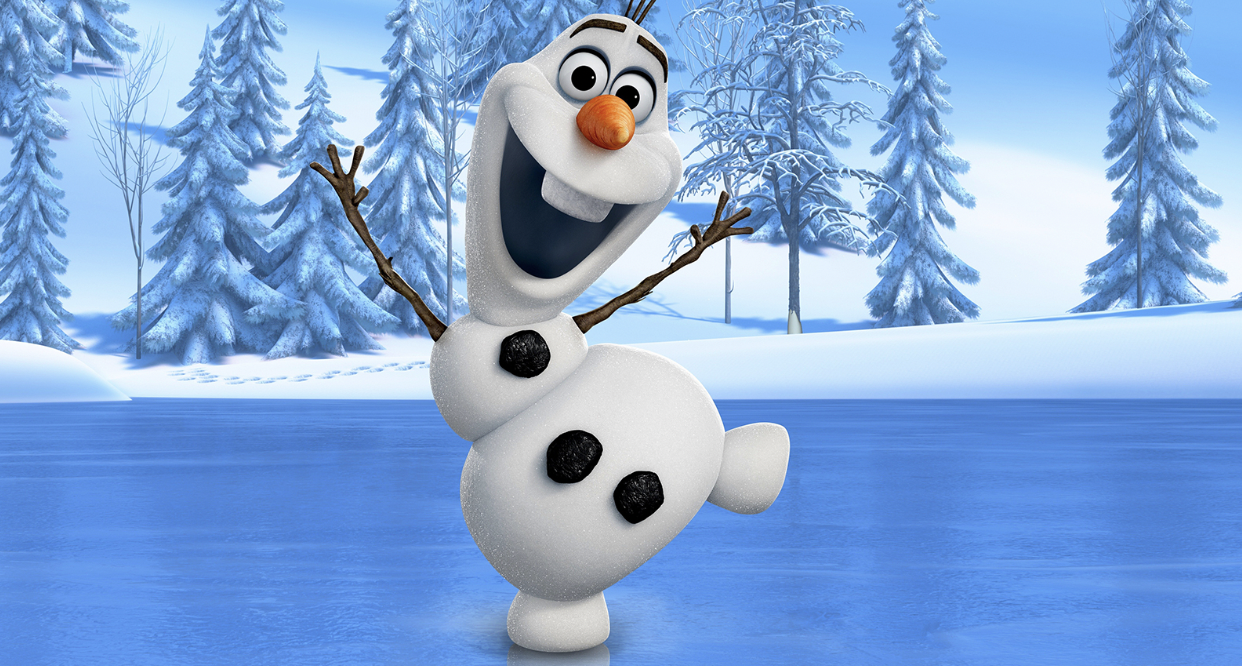
It’s not hard to see how Frozen tricked everyone into thinking it’s a Christmas film. As well as being set in a literal winter wonderland, the movie features an enchanted snowman and a lovable reindeer, both of which are familiar Christmas icons. The film was also released around the holidays, further cementing its status as a yuletide flick in people’s minds. The problem is, there isn’t a single mention of Christmas in either of the Frozen films, and – unless that changes in a potential third film – the Frozen franchise has no business appearing on festive film lists.
Metropolitan
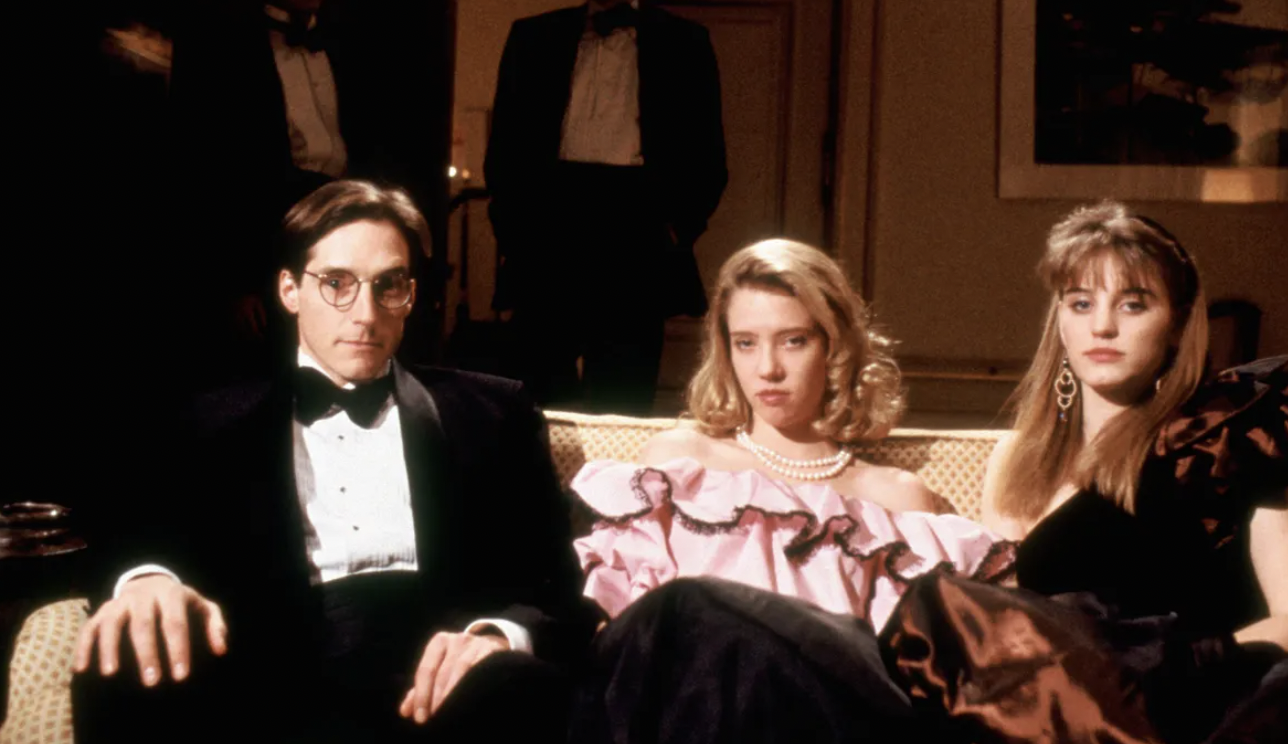
Does Metropolitan take place during the holiday season? Yes. Does it feature plenty of festive decorations? Undeniably. But is it a Christmas film? Absolutely not. The film follows a middle-class Princeton student with a fondness for French socialist philosophers, who inadvertently falls in with a group of wealthy socialites. In one scene, a character recounts the story of a girl who committed suicide after being pressured into group sex whilst drunk. If that doesn’t exactly sound Christmassy to you, that’s because it isn’t.
On Her Majesty’s Secret Service
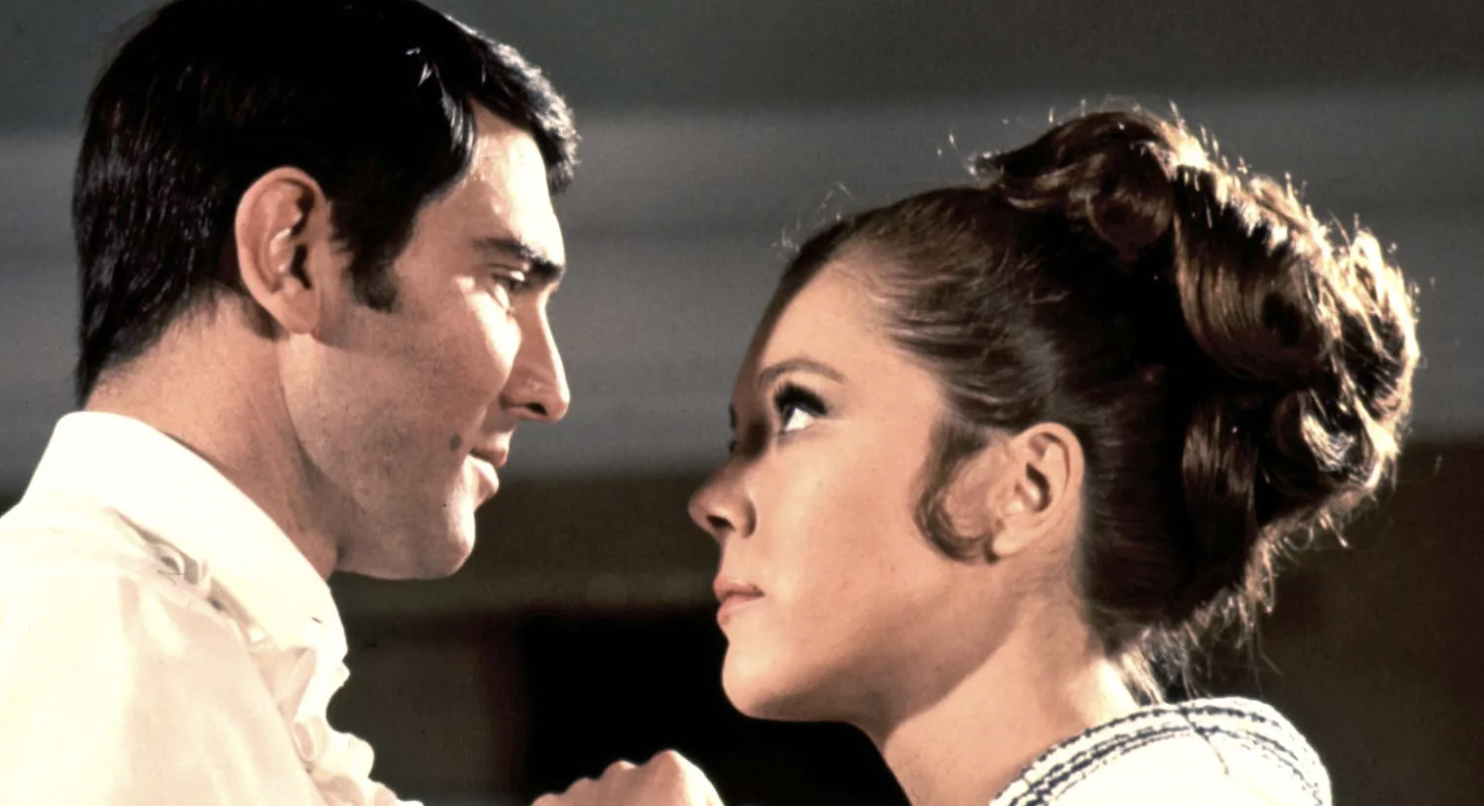
Considered by some to be a James Bond Christmas movie, and considered by everyone else to be a low point in the 007 franchise, On Her Majesty’s Secret Service features George Lazenby in his sole outing as the womanising British spy. Proponents of the theory that the film is secretly a yuletide flick point to the snowy, alpine setting and the cosy sequences of Bond settling down with his new bride. All of that completely overlooks the 42 people that Bond ruthlessly kills throughout the film, and the fact that the central plot involves a terrorist scheme to decimate the world’s agriculture. Also, most Christmas films don’t end with a drive-by shooting.
Catch Me If You Can
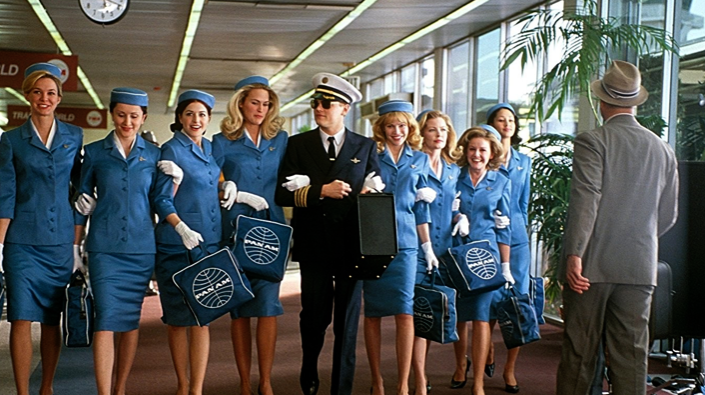
There is heated debate online about whether 2002’s Catch me if You Can – which stars Leonardo di Caprio as Frank Abagnale, a real-life conman with an almost supernatural gift for impersonation – should be considered a yuletide movie. Let’s settle the debate once and for all: no, it should not. The film technically starts and ends on Christmas, but that’s literally the extent of the film’s festive streak. Even those making the case that the film is a Christmas movie tend to put forth pretty bleak arguments; a 2022 Vulture article states that the film presents an ‘adult’ depiction of Christmas because ‘Christmas is a lonely time of reflection, of mourning a past life’, which sounds more like a bitter indictment of Christmas than a convincing argument about the film.
Lethal Weapon
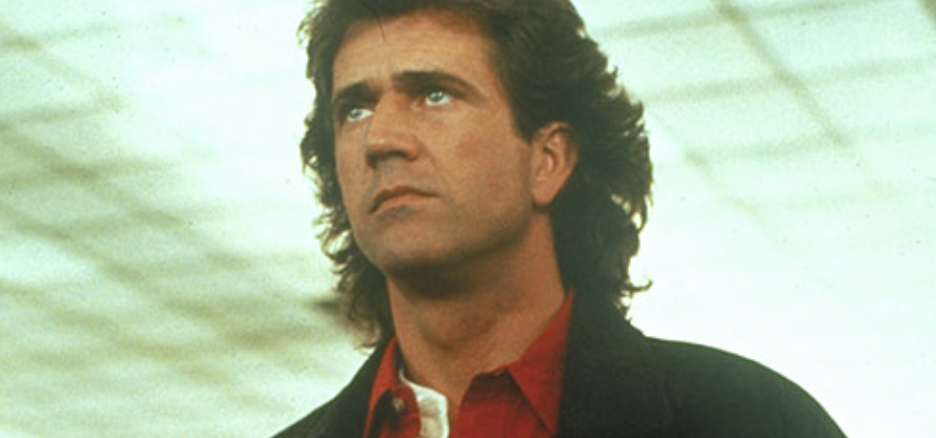
If there’s one thing you should take away from this list it’s that a film being set over the festive period does not automatically make it a Christmas movie. Despite this, many people still cling to the idea that Lethal Weapon should be traditional yuletide viewing, despite the fact that all of the festive stuff is happening in the background and never factors into the plot. Whilst watching Mel Gibson and Danny Glover gunning down bad guys is undeniably entertaining, but it’s also undeniably un-Christmassy. True Christmas films focus on the more sentimental aspects of the festive period, and generally don’t have the word ‘lethal’ in their titles.
The Green Knight
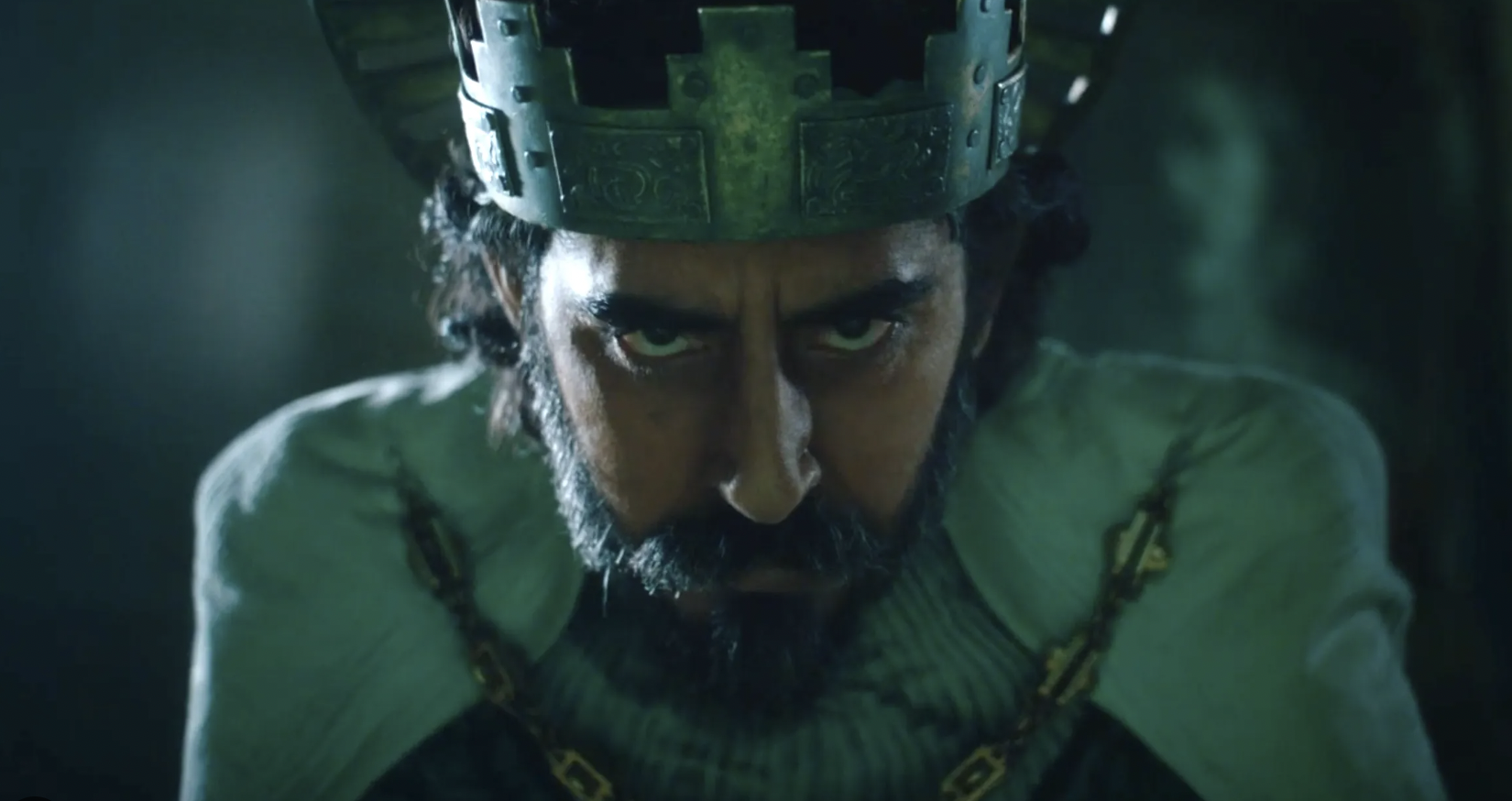
Unlike some of the other films on this list masquerading as yuletide flicks, The Green Knight does at least make multiple references to Christmas. The narrative begins on Christmas day, and concludes exactly a year later. However, the film never delves into stereotypical festive tropes, and contains plenty of macabre material, including a gang who make a living from robbing corpses and the ghost of a woman who was beheaded after resisting a stranger’s advances. The overall tone of the film – compelling though it is – is just too bizarre to make it appropriate viewing for the festive season.
Ghostbusters 2
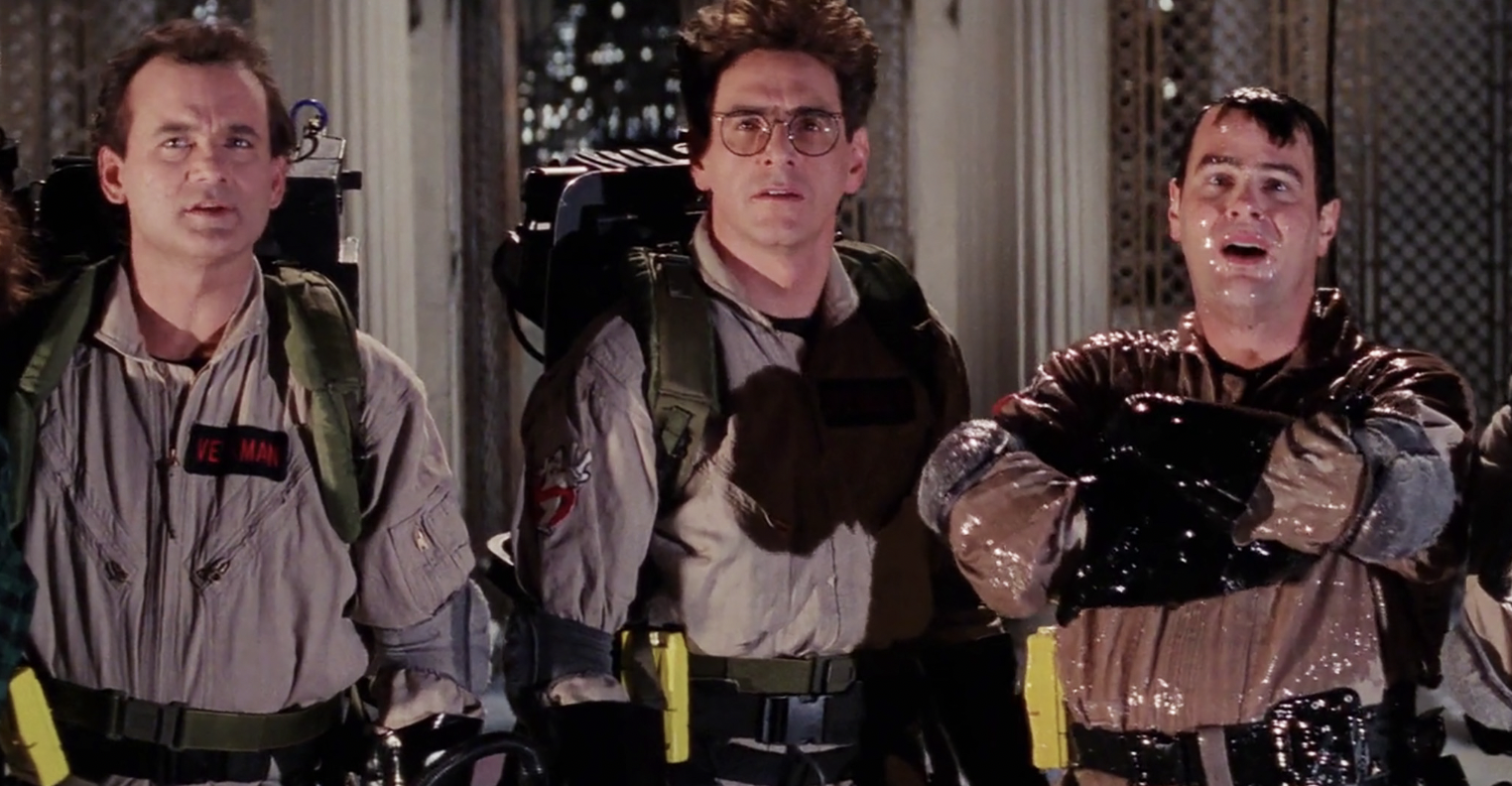
The evidence to support Ghostbusters 2 being a Christmas film is tenuous at best. No mention of the holiday is made at any point of the film, and the only clues to the time of year that the film is set are some Christmas decorations in the background of shots and the fact that the film ends with a New Year’s Eve party. To make matters worse, the timeline of the narrative suggests that the film actually begins after Christmas. The movie’s marketing department also clearly didn’t consider it a yuletide flick, as it was released in the middle of the year. You’d think that all of this would be enough to disqualify it as a Christmas film, but, for completely baffling reasons, it pops up every year on lists of traditional festive viewing.
Chicken Run
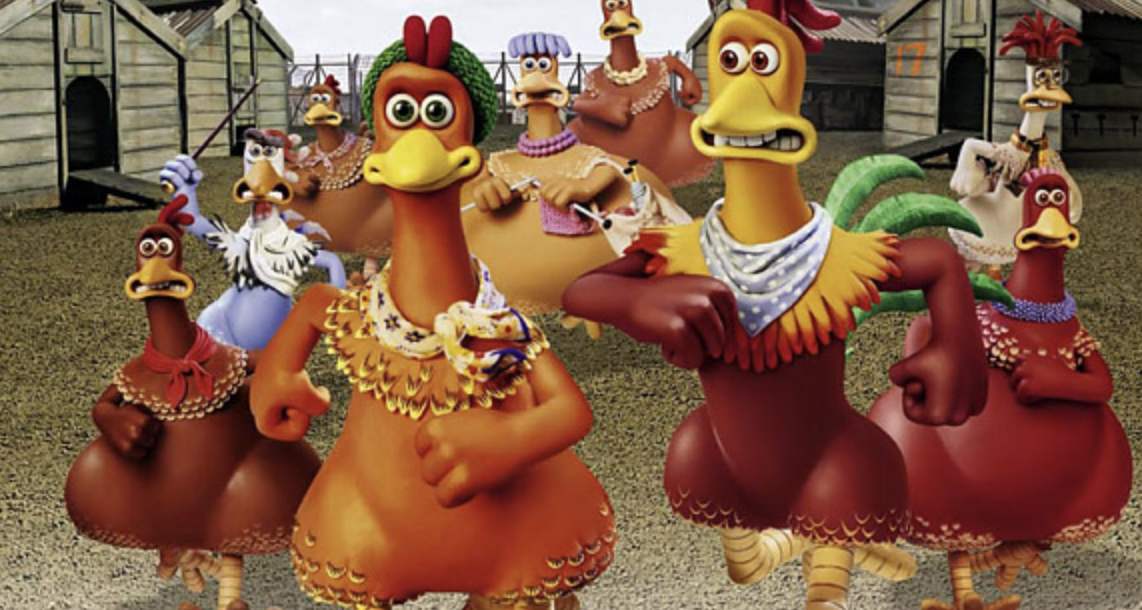
A parody of The Great Escape, Chicken Run has piggybacked off its source material’s status as a Christmas classic to become traditional viewing during the holidays. However, whilst The Great Escape at least featured a scene in which prisoners sing The 12 Days of Christmas, Chicken Run is entirely devoid of any festive references. The movie’s atmosphere is also surprisingly eerie for what is ostensibly a kid’s films, and the narrative tackles heavy themes such as death, exploitation, and injustice, none of which are exactly synonymous with Christmas cheer.
Spencer
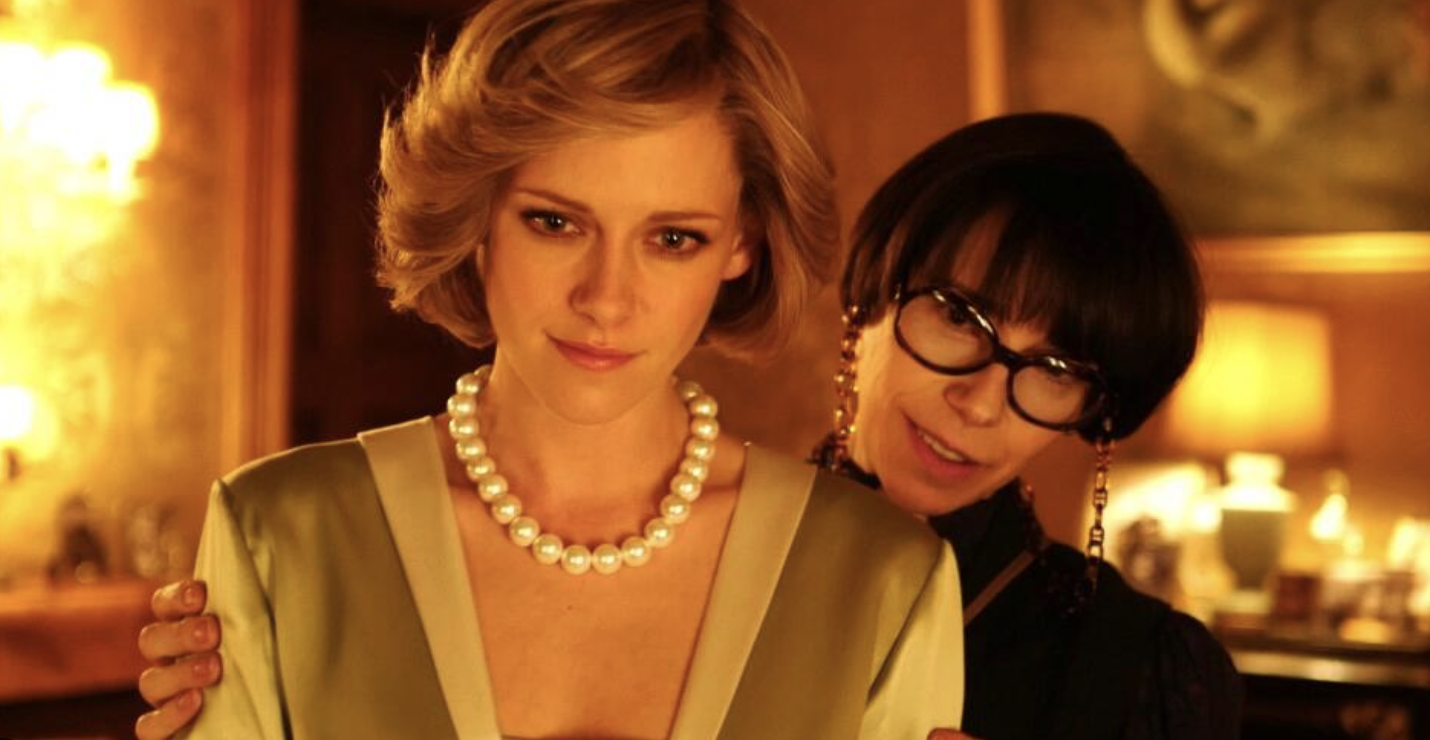
Set during the festive holidays in 1991, Spencer explores Princess Diana’s unravelling mental health as she contemplates divorcing Prince Charles and splitting from the Royal Family. If that doesn’t sound like a cheerful premise, that’s because it unequivocally isn’t. The film is incredibly light on the warm, fuzzy feelings that staples of the Christmas movie genre are generally replete with, and will probably leave viewers feeling emotionally drained, not exactly what you want when spending precious time with your loved ones. It’s also likely to make the King’s Christmas Day speech a somewhat dark experience.
Brazil
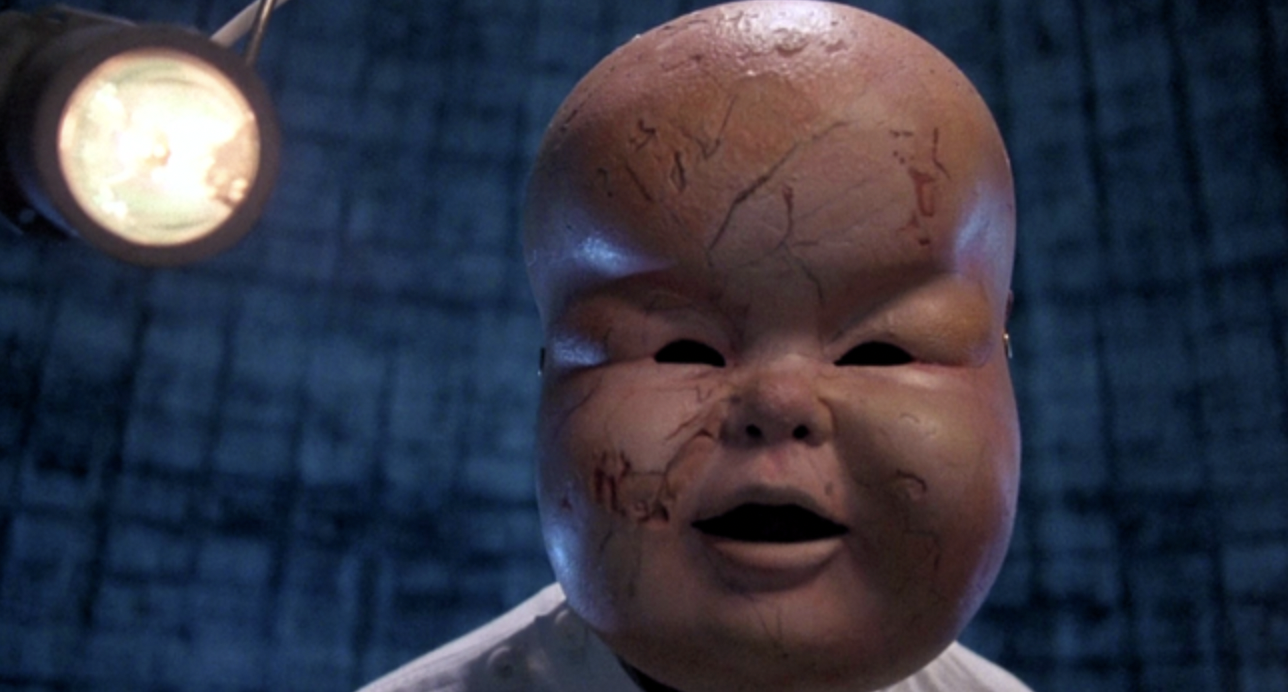
Any film that draws immediate comparisons to George Orwell’s 1984 almost certainly shouldn’t be counted as a Christmas flick. Nonetheless, 1985’s Brazil has a loyal fanbase who insist the film should be compulsory festive viewing. Although the movie is laden with traditional yuletide iconography including presents, carol singers, and multiple Father Christmases, it inverts all of these to satirise the rampant consumerism that many consider to have ruined the true meaning of Christmas. The film’s exploration of invasive government surveillance also now seems uncomfortably prescient, and – whilst it is a great film – dystopian nightmares just have no place around the Christmas tree.